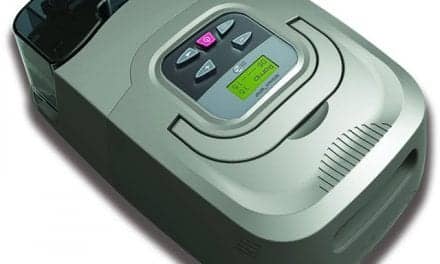The engineer at the helm of the Metro North deadly train derailment on December 1 was diagnosed with severe obstructive sleep apnea (OSA) post-derailment, according to National Transportation Safety Board (NTSB) documents released today.
According to the docket, on December 22, 2013, the engineer underwent a PSG after the engineer indicated he did not exactly recall events leading up to the accident. According to records from the sleep specialist evaluation, the engineer’s Epworth Sleepiness Score was 12.4. His body mass index was 34.0 kg/m2. The specialist notes the engineer had a history of snoring but not of choking or gasping arousals. The sleep specialist noted the engineer’s recent work schedule change from late night to early morning shifts.
During the diagnostic portion of his sleep study, the engineer’s overall apnea/hypopnea index (AHI) was 52.5 episodes/hour. The AHI rose to 67.5 episodes/hour when he was lying supine. His normal oxygen saturation (when awake) was 97%; the lowest oxygen saturation during his sleep study was 87%. Overall, the records reflect that the engineer had “high sleep fragmentation with 64.7 sleep arousals per sleep hour” and that the primary cause of the sleep fragmentation was respiratory arousals.
The sleep medicine specialist found the engineer to have severe OSA and prescribed continuous positive airway pressure (CPAP) as treatment. An additional statement in the specialist’s report reads, “Being a shift worker might have contributed to the accident.”
During a follow-up evaluation to assess the effectiveness of the treatment, the record notes the engineer used the CPAP for nearly 7 hours on each of the previous 30 days and that he was feeling more energetic. His Epworth Sleepiness Score had decreased to 1.
No screening or evaluation for OSA had been performed by any of his medical care providers prior to the accident. In routine check-ups for years prior to the derailment, the engineer had consistently answered “no” to questions about whether he suffered from “excessive worry, depression, or difficulty with sleep” and to questions about “excessive weakness or fatigue.”
Records were obtained from the engineer’s primary care physician’s office from June 2010 through December 2013. At no point during the preaccident care did his healthcare providers document a discussion with the engineer regarding snoring, interrupted sleep, daytime sleepiness, or sleep pattern.
No mention is made in Metro-North’s Medical Guidelines of sleep apnea or any other sleep disorders.
The information so far released by the NTSB doesn’t provide analysis of the derailment’s cause. Analysis of the accident, along with a determination of probable cause, will come later when the final report on the investigation is completed.



![Causes and Treatment of Sleep Apnea [transcript] [audio]](https://sleepreviewmag.com/wp-content/uploads/2017/07/Jayne-Carberry-440x264.png)
